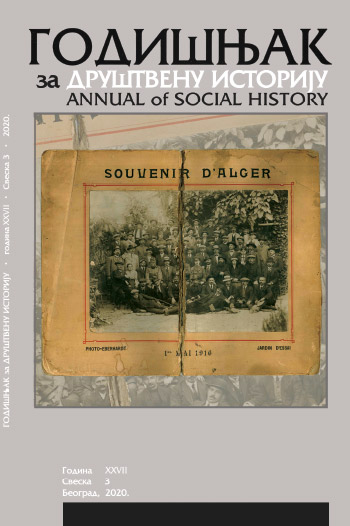Bankers as Part of the Economic and Political Elite and the Role of Bankocracy – The Case of Allgemeiner Jugoslawischer Bankverein
Bankers as Part of the Economic and Political Elite and the Role of Bankocracy – The Case of Allgemeiner Jugoslawischer Bankverein
Author(s): Vesna AleksićSubject(s): Economic history, Local History / Microhistory
Published by: Udruženje za društvenu istoriju
Keywords: Banking elite; Bankocracy; Kingdom of Yugoslavia; Allgemeiner Jugoslawischer Banverein; King Alexander Karađorđević; Ivan Ribar
Summary/Abstract: Defining the banking elite and its role and importance within the economic and political elite was a process that lasted throughout the twentieth century. The paper gives a brief overview of this process in Europe, while on a very representative example of the Allgemeiner Jugoslawischer Banverein as a large bank of international financial capital, shows how this process went in the Kingdom of Yugoslavia and how important it was in modernizing Yugoslav society, especially given that it was the bankers who possessed the knowledge without which economic and financial development and the comprehensive progress of society were not possible. However, this process was accompanied by the strengthening of the bankocracy, whose political activities influenced the business policy of banks, often using them as a tool in party conflicts, but also enabling the unhindered spread of nepotism and corruption in pre-war Yugoslav society.
Journal: Godišnjak za društvenu istoriju
- Issue Year: XXVII/2020
- Issue No: 3
- Page Range: 7-22
- Page Count: 16
- Language: English

